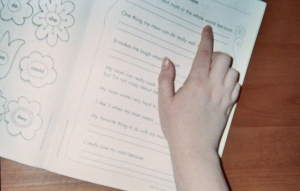Hi and welcome back to Attention-ology for K – 5 Teachers!
If the end of June means the beginning of a long summer break from school for you, let’s face it, FREEDOM is the glory word, fleeting though it may be! FOCUS is an academic word…who needs academics in the first weeks of FREEDOM! So, focusing on tools and tricks to catch and keep students’ attention – what my blog is all about – may be the last thing on your mind right now.
But…isn’t there almost always a “but…” you may be like many teachers are – always tuned in to new ideas that will benefit your students by upping your teaching skills.
Or, you may live in the Southern Hemisphere where school is in session – this is the worldwide web – or you may be a Northern Hemisphere-based traditional calendar elementary school teacher who is also a parent of K – 5 kids, looking for activities to keep your children busy while preventing brain drain.
It’s also possible that you are a teacher, an assistant or care-giver who works in a year-round school that operates through summer months, a pre-school, after-school program, summer camp, day camp, daycare that includes older siblings of pre-school children, or some other program that involves a young audience of learners. If so, this blog is for you! Whew…our world educational community is HUGE.
The word “huge” also describes the impact of an American man named Frederick Douglass. And, according to his autobiography, FREEDOM was also his glory word, but in a very different way.
Born into slavery in 1818 along the eastern shore of Maryland, a state now described in the US as mid-Atlantic, Frederick Douglass became a free man, social reformer, orator, writer and statesman.
Douglass is credited for using a masterful trick to enrich his own education.
He wrote in his autobiography of learning to read by tricking the white children in his neighborhood into teaching him how to spell. The trick? He would lean over their shoulders toward a book and say, “Bet you don’t know that word!”
Naturally, his free young peers would shout out that word, probably spell it too, and maybe even brag about knowing the definition. “Betcha don’t know that” can getcha a lot of knowledge when you’re a kid.
Beyond the tricks Frederick Douglass employed, he built his beliefs and career around the basic concept that educated people would (and do) want to be free.
Douglass didn’t even learn the alphabet until he was twelve. His slave owner’s wife introduced him to this foundation for reading and writing. Her efforts were risky because the laws of the day prohibited teaching slaves to read. Historical accounts of Douglass’ life describe slave owners of his pre-Civil War days being afraid that if slaves learned to read they would become dissatisfied with their conditions and want FREEDOM.
No matter what pathway we take this summer, we can choose to apply the inspired words of Frederick Douglass to our own journeys. Douglass wrote that “knowledge is the pathway from slavery to freedom.”
As educators in the twenty-first century, we and our students may not literally need to seek to be free, but we teachers can seek to gain more knowledge – more tools and simple tricks like “Betcha!” that may help our students soar to great heights.
Remember, you don’t need to be a magician to work magic in instructional settings!
Talk with you next week,
Barbara ♥ The Lovable Poet


